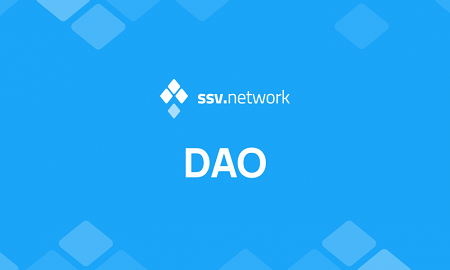SSV.network DAO has started a new ecosystem fund to support Ethereum’s Proof-of-Stake decentralization, a move it claims will encourage the development of new staking-related technologies using apps built on Distributed Validator Technology.
The $50 million ecosystem fund would aid initiatives developing products utilizing distributed validator technology, or DVT. The fund’s primary purpose is to promote DVT use cases to further Ethereum’s long-term decentralization initiatives.
A validator’s responsibilities can be divided among several nodes due to the open-source DVT protocol. As more DVT implementation leads to more decentralization, the protocol was a crucial part of Ethereum co-founder Vitalik Buterin’s strategy for ETH 2.0.
The early stages of L2 implementations are comparable to DVT and the many use cases being developed employing the technology. However, each technology focuses on a different issue, with L2s concentrating on transaction speed and cost reduction and DVT focusing on Ethereum’s security and decentralization.
To fund the development of DVT initiatives utilizing the SSV protocol, SSV announced a $10 million pool in July. It has awarded $2 million so far, and candidates for this new ecosystem fund will be chosen from a shortlist of high-performing grantees. Grant recipients included Moonshake, Blockscape, ANKR, and Stader.
Alon Muroch, Core Dev Lead at SSV, stated:
“Distributing Ethereum’s security layer has never been more important. The protocol is currently secured by a small group of companies which, when put together, control the entire Blockchain.”
Alon continued by saying that DVT aims to distribute Ethereum’s security by providing quick and simple access to an open-source, public good that would fundamentally alter the way staking is now conducted.
According to Alon, the DVT protocol from SSV.network is already being used by more than 20 companies, and the launch of the Eco Fund is likely to greatly increase that number.
To improve the network’s scalability, security, and decentralization, Ethereum is transitioning to proof-of-stake through a multi-phased process. The switch brought about ETH staking, in which users actively take part in validating transactions. For Ethereum, 32 ETH is the required minimum staking amount to become a validator.
If you would like to read more news articles like this, visit DeFi Planet and follow us on Twitter, LinkedIn, Facebook, and Instagram.
“Take control of your crypto portfolio with MARKETS PRO, DeFi Planet’s suite of analytics tools.”





















